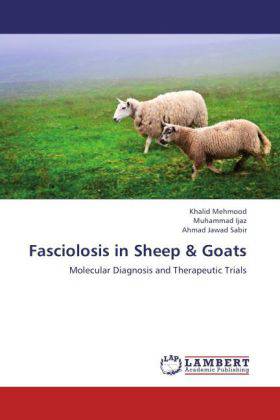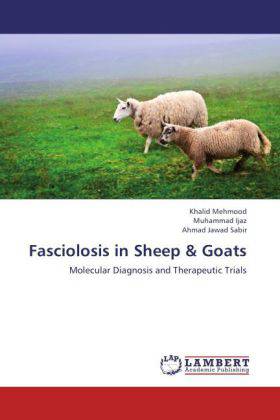
- Afhalen na 1 uur in een winkel met voorraad
- Gratis thuislevering in België vanaf € 30
- Ruim aanbod met 7 miljoen producten
- Afhalen na 1 uur in een winkel met voorraad
- Gratis thuislevering in België vanaf € 30
- Ruim aanbod met 7 miljoen producten
Zoeken
Fasciolosis in Sheep & Goats
Molecular Diagnosis and Therapeutic Trials
Khalid Mehmood, Muhammad Ijaz, Ahmad Jawad Sabir
Paperback | Engels
€ 48,45
+ 96 punten
Omschrijving
Fasciolosis is an important and infectious disease of sheep and goats which is characterized by dullness, weakness, lack of appetite, pallor and edema of mucosa and death of animal. The accurate diagnosis of Fasciolosis and the right choice of medicine remained a difficult task for the field practitioners. This is the first molecular report for the diagnosis of Fasciolosis in sheep and goats in Pakistan. It is concluded that PCR is more reliable technique than microscopic examination for the diagnosis of Fasciolosis in sheep and goats. Microscopic technique provides the base line data for the diagnosis of Fasciolosis in sheep and goats while PCR provides help to conduct further molecular studies on Fasciolosis as well as others parasitic diseases. Secondly Fasciolosis which is an important parasitic problem of ruminants is significantly prevalent in sheep and goats in Lahore, Okara and Sahiwal districts of Punjab. Oxyclozanide (Zanil) is the most effective drug while Albendazole and Neem leaves (Azadirachta indica) are relatively less effective against Fasciolosis in sheep and goats.
Specificaties
Betrokkenen
- Auteur(s):
- Uitgeverij:
Inhoud
- Aantal bladzijden:
- 76
- Taal:
- Engels
Eigenschappen
- Productcode (EAN):
- 9783659217029
- Verschijningsdatum:
- 15/08/2012
- Uitvoering:
- Paperback
- Formaat:
- Trade paperback (VS)
- Afmetingen:
- 152 mm x 229 mm
- Gewicht:
- 122 g

Alleen bij Standaard Boekhandel
+ 96 punten op je klantenkaart van Standaard Boekhandel
Beoordelingen
We publiceren alleen reviews die voldoen aan de voorwaarden voor reviews. Bekijk onze voorwaarden voor reviews.











